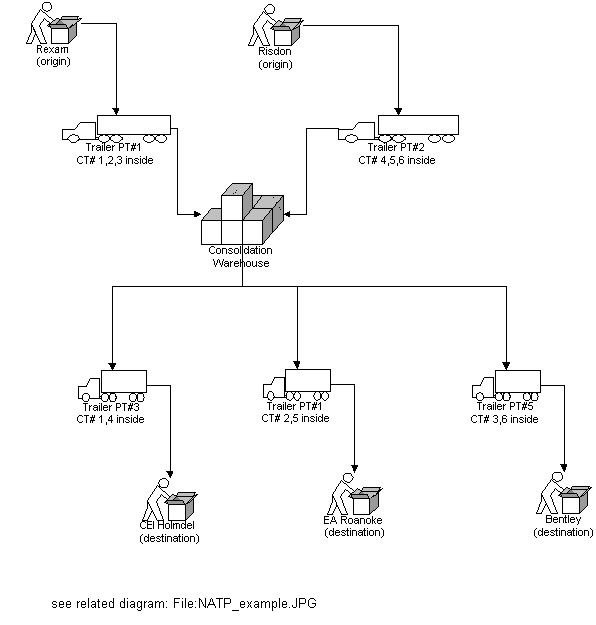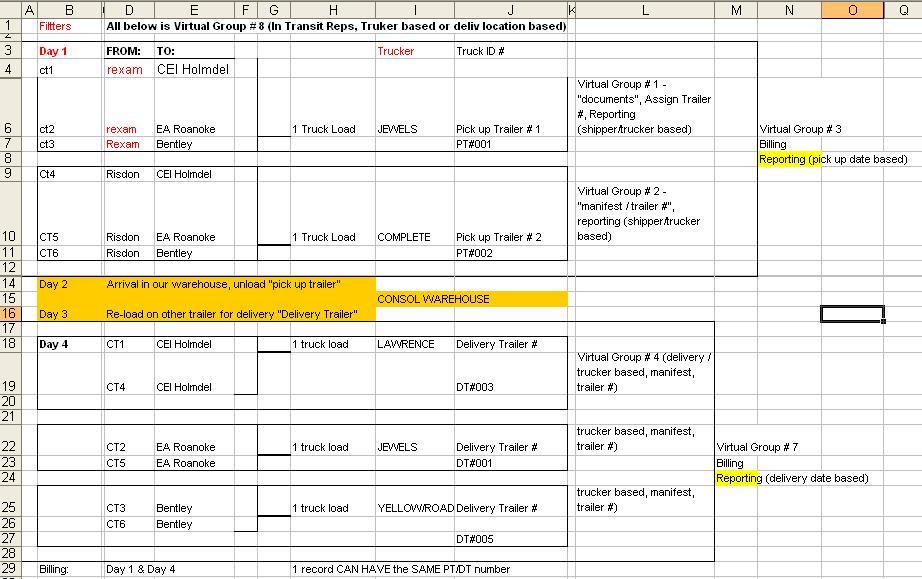Business Process and Use Cases for NATP
From UG
(Difference between revisions)
(→Typical Example) |
(→Typical Example) |
||
| Line 6: | Line 6: | ||
== Typical Example == | == Typical Example == | ||
| + | === Summary === | ||
Let's look at the typical example - what might happen. | Let's look at the typical example - what might happen. | ||
| Line 18: | Line 19: | ||
This order will be forwarded to selected trucking company. | This order will be forwarded to selected trucking company. | ||
| + | |||
| + | Trucking company handles the order and sends back [[POD]]s. | ||
| + | |||
| + | Operator also would: | ||
| + | * generate reports (for example In Transit) | ||
| + | * do billing | ||
| + | |||
| + | === Day 1 === | ||
| + | |||
| + | Assume for simplicity sake that only 6 orders came in that day. | ||
| + | |||
| + | CT 1,2,3,4,5,6 were created. | ||
| + | |||
| + | See [[#Figure 1]]. | ||
== Transportation == | == Transportation == | ||
Revision as of 19:48, 7 April 2010
Contents |
Intro
The goal of this article is to describe various workflows (business processes) related to NATP project and related required user interactions with CT2 (use cases).
Typical Example
Summary
Let's look at the typical example - what might happen.
It is estimated that on an average day about 30 NATP "shipping orders" would come in.
Each order has an info on:
- what to ship (PO, SKU, PCS, Gross weight, etc)
- shipping from info (address)
- shipping to info (address)
In general, for every order CT record would be created.
This order will be forwarded to selected trucking company.
Trucking company handles the order and sends back PODs.
Operator also would:
- generate reports (for example In Transit)
- do billing
Day 1
Assume for simplicity sake that only 6 orders came in that day.
CT 1,2,3,4,5,6 were created.
See #Figure 1.
Transportation
Billing
See also
- Business Process for Arden Trucking Domestic - another trucking domestic work flow (currently in use)



